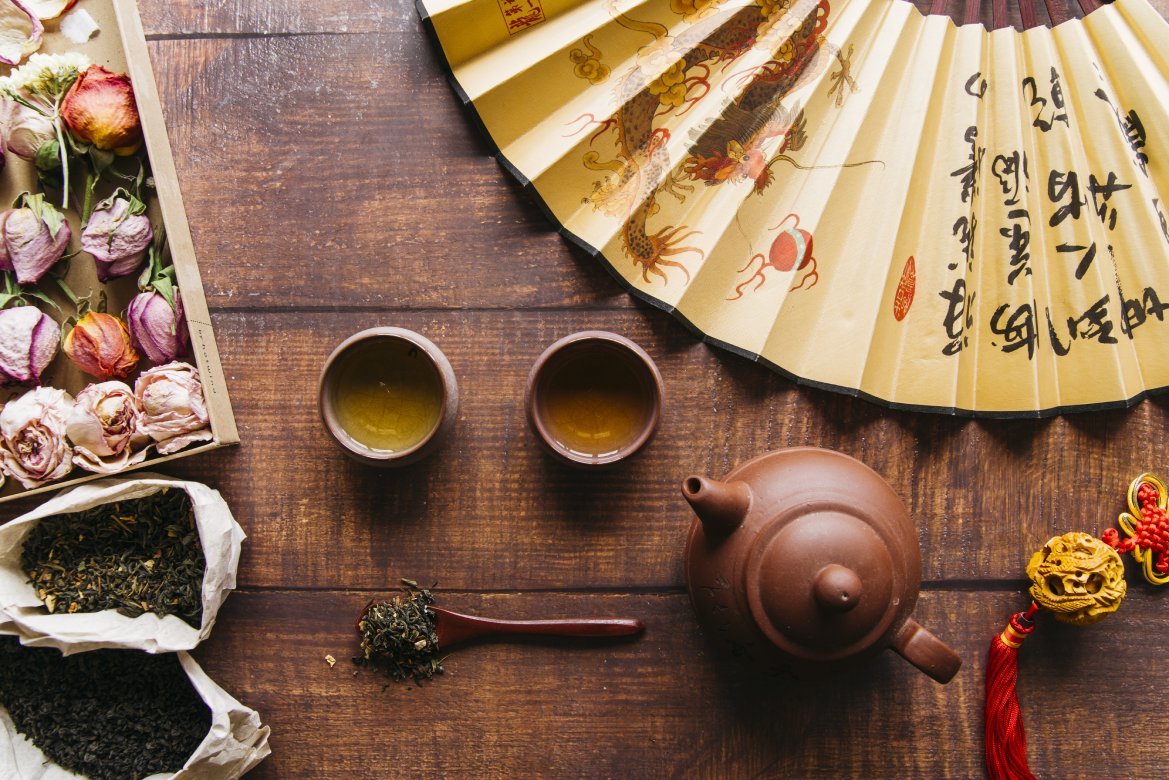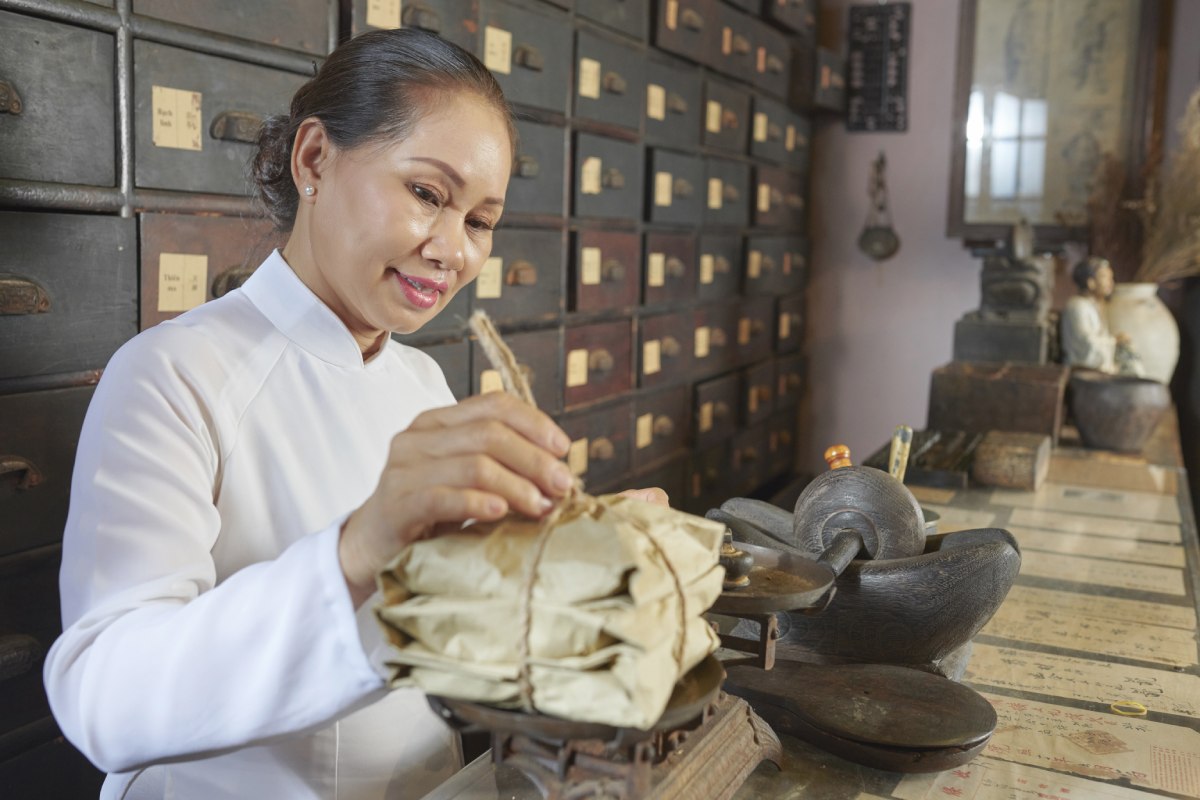Traditional Chinese medicine (TCM) quite has a long history.
In the ancient years, when humans were oblivious to modern technology and medicine, they all depended on the traditional medicines that were essentially made from herbs.
These medicines made from herbs were famous for not having any side effects and miraculous healing powers.
However, with the advancements in technology, human beings found modern ways to manufacture medicines and drugs that produce instant effects to reduce or eliminate the symptoms of the illness in the human body.
The modern allopathic medicines are known to treat diseases and illnesses quickly, but they may also have some side effects on the body.
Therefore, traditional treatments and medicines such as traditional Chinese medicines including herbal products, tai chi, and acupuncture are still important subjects for numerous clinical studies and scientific reviews.
This post provides a comprehensive guide to traditional Chinese medicine outlining its benefits, treatments, and other important aspects.
What is Traditional Chinese Medicine?

Traditional Chinese Medicine dates back to more than 3500 years making it one of the oldest healing systems. It is a complete institutionalized part of healthcare in China that’s also widely used in conjunction with western medicine.
The TCM is based on the Qi concept which is the vital force of life within the body.
Chinese believe that an imbalance in the Yin and Yang of the Qi causes illness and disease.
TCM includes acupuncture, gua sha, herbal medicine, cupping therapy, exercise, massage, bonesetter, and dietary therapy.
This form of medicine is still practiced heavily in China which not only focuses on curing diseases but also ensures the well-being of the human body.
The TCM treatment focuses on the restoration of the balance between health and disease, and the internal body organs and the external elements of the earth.
How Does Chinese Medicine work?

Essentially, unlike western medicine, traditional Chinese medicine doesn’t focus on science. It rather works on balance, harmony, and energy of the body.
TCM is considered beneficial for the body when used with allopathic treatment as a complementary therapy.
Therefore shouldn’t be used as a replacement for western treatments especially in the case of serious ailments.
The working of Chinese medicine is based on the concept of Yin and Yang that make up Qi.
The focus is on balancing the Yin and Yang within the body to feel healthy and free of any ailments.
As a result, the main practices involved in TCM are:
- Acupuncture wherein extremely thin needles are gently inserted through specific points on the skin to stimulate the nerves.
- Herbs that are used to make capsules, teas, and herbal powders from plants. The most commonly used herbs are cinnamon, ginger, astragalus, red yeast rice, ginseng, Gotu kola, Ginkgo Biloba, and Yu Xing Cao.
- Cupping therapy is used to create suction on the skin for a few minutes using special cups. This therapy is like a deep-tissue massage that helps relieve pain, reduce inflammation, improve blood flow, well being, and relaxation.
- Meditation involves sitting quietly in a certain position and calming the mind.
- Tai Chi is an exercise that involves a focus on the breath and slow movements.
- Moxibustion is a kind of heat therapy wherein dried herbs are burnt on or very close to the skin for a smoother flow of blood and Qi.
Why It’s Worth Using Traditional Chinese Medicine
People believe that TCM is relatively safe and effective.
However, the practicing person should have enough immense experience and knowledge about TCM.
If not treating well enough, herb therapy may have side effects if taken along with other medicines.
So it’s best to consult your doctor before consuming western medicines along with herbs.
While the results of treatments with traditional Chinese medicine may have varying impacts on different people, the studies on treatments by TCM show good results.
Specialists use TCM for treating various health conditions.
For example, they use it for:
- Back pain
- High blood pressure
- Diabetes
- allergies
- Anxiety
- Obesity
- Insomnia
- Depression
- Arthritis
- Menopause symptoms
- Skin conditions
TCM brings numerous physical and psychological health benefits by inducing healing mechanisms within the body. It treats various ailments such as pain, infertility, neuropathy, and many other symptoms as discussed above.
Moreover, TCM has very few side effects that are practically harmless, and therefore it proves to be better than other medication for a few ailments.
Top Health Benefits of TCM
Reduces inflammation

The root cause of various chronic diseases such as diabetes, cancer, heart diseases, and others, is Inflammation.
The herbal treatments, acupressure, and acupuncture with TCM help reduce inflammation significantly.
In fact, dietary therapy of traditional Chinese medicine also helps people change their lifestyle habits. Such habits include but not limited to smoking, drinking alcohol, overeating, and others, that are harmful to the body and worsen inflammation.
Helps with insomnia
The treatments of traditional Chinese medicine also help improve the quality of sleep and reduce insomnia.
Getting enough sleep improves the cognitive strength and blood circulation in the body and helps calm anxiety.
Improves cognitive health
Chinese herbs also help reduce stress and regulate the hormones that protect the brain.
As the brain controls the immune response of the body, TCM improves cognitive health while eliminating the risks of developing dementia at later stages in life.
Improves muscle strength
Traditional Chinese medicine also involves strength exercises that enhance muscle strength and improve the flexibility of the body.
Tai Chi is more like an aerobic workout which improves the balance, enhances flexibility and agility, and improves muscle strength if practiced for three months continuously.
What are the Top Uses of Chinese Medicine Treatment
Chinese Medicine Treatment for Multiple Sclerosis (MS)
Multiple Sclerosis is a disease that disables the brain and spinal cord. It is caused when the immune system attacks the protective covering of the nerve fibers, causing permanent damage to the nerves.
Consequently, the communication between the brain and the rest of the body is affected.
As per clinical trials, Chinese medicine treatment has proved to be effective in relieving MS symptoms, delaying the progression of MS disease in patients, and preventing recurrence.
Under TCM, experts treat MS using four main principles:
- Syndrome differentiation;
- Status removal;
- Toning deficiency;
- Detoxication.
The TCM therapy for MS through acupuncture and herbs provides anti-inflammatory, immune-regulatory, anti-oxidative, and neuroprotective effects.
Chinese Medicine Treatment for Asthma

For the treatment of Asthma, physicians use Chinese herbal medicine and acupoint herbal patching to reduce the symptoms, reduce inflammation, and improve lung functions.
Physicians use a blend of nonsteroidal traditional Chinese herbs called ASHMI short for anti-asthma herbal medicine intervention. This blend consists of Lingzhi, Gancao, and Ku Shen.
Chinese Medicine Treatment for SIBO
Small Intestine Bacterial Overgrowth (SIBO) is a condition wherein the small intestine contains large amounts of commensal bacteria.
The bacteria can cause digestion and absorption impairment and produce large amounts of hydrogen and methane gas.
SIBO causes bloating, heartburn, nausea, diarrhea, constipation, etc.
In TCM, professionals use herbs, dietary therapy, and acupuncture therapy to treat the symptoms of SIBO.
In general, TCM recommends eating foods that improve the warmth and energy in the gut thereby helping with digestion.
Acupuncture helps move energy and unblocks channels to enhance the flow of energy and improve digestion.
Chinese Medicine Treatment for Hair Loss
For hair loss, regular acupuncture is a good treatment that improves the flow of blood and qi in the scalp to regenerate and grow hair.
Moreover, Chinese herbs help stop hair fall by nourishing the QI and blood.
Additionally, it is important to make changes to lifestyle and nutrition to treat hair loss.
Chinese Medicine Treatment for Insomnia
Traditional Chinese medicine pairs herbal medicines with acupuncture to help patients who are battling chronic insomnia, sleep apnea, and nightmares.
TCM recognizes insomnia as an imbalance of energy or qi, and therefore, it focuses on pressure points and meridians to bring balance in the blood flow, energy, and organs.
The most popular herb used to cure insomnia is Suan Zao Ren that enriches the blood which flows to the liver and the heart.
How & Where Can You Learn Chinese Medicine?
The Accreditation Commission for Acupuncture and Oriental Medicine (ACAOM) accredits schools that teach traditional Chinese Medicine.
You can find various accredited courses online.
Numerous professors teach the courses.
Also, they have practical experience in Chinese Medicine so no need to worry when learning. 🙂
For instance, you can also learn Everyday Chinese Medicine offered by The Chinese University of Hong Kong on Coursera.
So How Can You Become a Chinese Medicine Doctor?

Becoming a certified Chinese Medicine doctor requires completion of three to four years of postgraduate study form an accredited institution as a full-time student.
Your licensing and training should be up-to-date to be a qualified TCM practitioner.
The certification is offered by the Certification Commission for Acupuncture and Oriental Medicine (NCCAOM).
Essentially, there are two types of certification that the certification commission offers:
- Acupuncture;
- Oriental medicine.
For Acupuncture, one required to complete at least 1,905 hours of didactic and clinical education through an accredited course.
For Oriental Medicine, one must complete at least 2,625 hours of didactic and clinical education in Chinese herbal medicine and acupuncture.
Where Can You Buy Traditional Chinese Medicine?

Prior to buying traditional Chinese medicine, ensure that you learn about these herbs and their effects, and also consult a certified Chinese medicine practitioner.
The access and availability of traditional Chinese medicine have increased, all thanks to medicine delivery apps that facilitate the online delivery of TCM.
You can also visit traditional stores where you can find TCM.
However, you need to ensure that the quality of the Chinese herbal medicines you are buying is good and the seller should be a genuine one.
Another way is to consult a Chinese medicine doctor who can suggest where to buy quality Chinese herbs from.
Conclusion
Chinese herbal medicines don’t go through an FDA process as other medicines and drugs do.
Therefore, with a little research, there’s always an uncertainty as to what’s in the medicines.
Moreover, the herbs if taken with other allopathic medicines may have some side effects.
So, whenever you are considering a traditional Chinese medicine treatment, ensure that you always consult your doctor and a qualified Chinese medicine doctor.
This guide to Traditional Chinese Medicine will help you understand the basics of Chinese medicine that have helped eliminate the symptoms of some diseases and how it works.
James is the Founder & CEO of GurusWay.com. Majoring in Business and other life-changing sectors, James covers helpful content and shares his experience with the targeted audience.